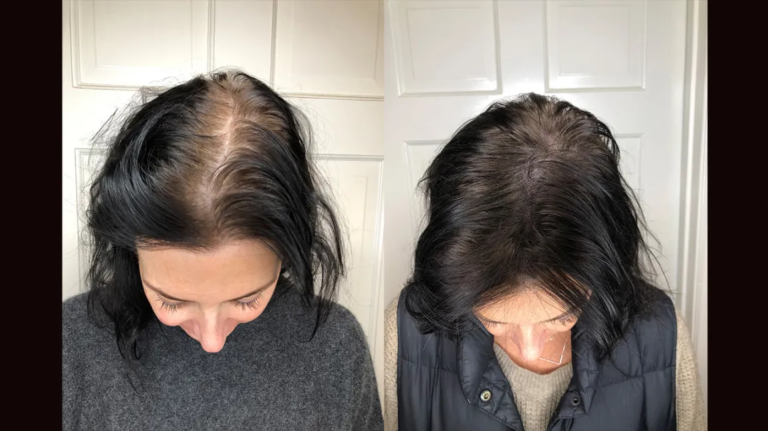
Quality rest is essential for physical and mental health. An increasing body of research highlights the role of probiotics in supporting rest and promoting overall health. These live microorganisms improve gut health, which directly influences sleep patterns and general well-being. They assist in maintaining microbial diversity, a crucial factor for preventing gut-related issues that may disrupt rest.
Do You Need Probiotics?
Some of the signs you need probiotics include:
- Frequent digestive discomfort like bloating or irregular bowel movements.
- Sleep disruptions or difficulty falling asleep.
- Persistent fatigue or low energy levels.
- Mood swings, irritability, or feelings of stress.
- Skin issues, including acne or dryness.
- Susceptibility to illness or slow recovery from infections.
Chronic antibiotic use or a poor diet may also contribute to a depleted gut microbiome, increasing the need for probiotic support. Identifying these signs early can help prevent more severe health complications associated with gut imbalance.
Better Sleep
A healthy gut microbiome significantly influences the ability to fall asleep and stay asleep. Probiotics regulate hormones like serotonin and melatonin, which play a critical role in sleep cycles. Restless nights and fatigue can often be traced to an imbalanced gut. Studies indicate that Lactobacillus fermentum and Bifidobacterium breve specifically promote better sleep by reducing oxidative stress in the gut. Furthermore, consistent use can improve REM sleep quality, the restorative phase of the sleep cycle.
Helpful for Restful Nights
Probiotics improve sleep quality by addressing underlying factors like inflammation and stress. Specific strains, such as Lactobacillus and Bifidobacterium, have been shown to lower stress markers, leading to deeper and more restorative rest. By improving the gut-brain axis, they help ensure the body functions optimally during both wakeful hours and rest. Research shows that they reduce cortisol levels, the stress hormone, which directly impacts the ability to relax before sleep. Probiotic supplementation has also been linked to increased gamma-aminobutyric acid (GABA) production, a neurotransmitter that promotes calmness.
Boosting Mental Health Naturally
Gut health and mental health are closely linked. The gut produces neurotransmitters that influence mood and stress levels. Probiotics support the production of these chemicals, fostering emotional stability. Improved mental health contributes to reduced stress, which is a significant factor in disrupted rest patterns. For example, Bifidobacterium longum has been shown to reduce symptoms of anxiety in clinical trials. Additionally, consistent probiotic use can enhance brain-derived neurotrophic factor (BDNF) levels, supporting cognitive function alongside mental well-being.
Stronger Immunity Starts Here
A robust immune system is another benefit of a balanced microbiome. Probiotics strengthen the body’s natural defences, reducing the risk of illness that might disturb rest. By maintaining a strong immune system, they indirectly support uninterrupted sleep. Specific strains, such as Lactobacillus rhamnosus GG, increase immunoglobulin A (IgA) levels, which protect the body from pathogens. They also help reduce the duration of respiratory infections, common culprits of disturbed rest.
Happy Gut, Healthy Life
The gut’s role in overall health extends beyond digestion. A balanced gut microbiome supports nutrient absorption, regulates inflammation, and enhances energy levels. Probiotics create a healthier internal environment, which positively impacts daily life. Certain strains, like Lactobacillus casei, improve intestinal barrier function, preventing harmful substances from entering the bloodstream. This process also reduces the risk of leaky gut syndrome, a condition linked to chronic inflammation and fatigue.
Manage Weight with Ease
Weight fluctuations often affect rest. Probiotics help regulate metabolism and promote healthy digestion, assisting with weight management. A well-regulated weight reduces physical discomfort and improves rest quality. Strains like Bifidobacterium animalis subsp. lactis have been shown to reduce abdominal fat and improve body composition. Additionally, they can influence the production of short-chain fatty acids (SCFAs), which play a role in energy metabolism and appetite regulation.
Enjoy Clear Skin
Skin health often reflects internal health. Probiotics improve skin clarity by reducing inflammation and balancing internal microbiota. Better skin health can also enhance confidence and emotional well-being. Research suggests that Lactobacillus plantarum can reduce acne severity by targeting inflammatory pathways. Moreover, they can boost ceramide levels in the skin, improving hydration and barrier function.
Balanced Moods
Stress and anxiety disrupt rest patterns. Probiotics help stabilize mood-regulating hormones, easing feelings of tension. This balance creates an environment where rest comes more naturally. Strains like Lactobacillus helveticus and Bifidobacterium longum have demonstrated a positive impact on cortisol reduction and emotional resilience. Furthermore, probiotic intake can lower systemic inflammation, a key factor in mood disorders like depression.
Relief for Digestive Issues
Digestive issues often interfere with rest. Probiotics restore harmony in the gut, alleviating discomfort and promoting smoother digestion. A peaceful digestive system can significantly enhance sleep quality. Studies show that Saccharomyces boulardii can effectively manage diarrhoea and other acute digestive issues. Additionally, they may help regulate bowel movement consistency, reducing the likelihood of nocturnal disturbances.
Recognizing the signs that you need probiotics and incorporating them into daily routines can lead to better rest and enhanced well-being. From balancing moods to enhancing immunity, their benefits are extensive. Choosing clinically validated strains and maintaining consistent usage are essential steps toward unlocking their full potential.






